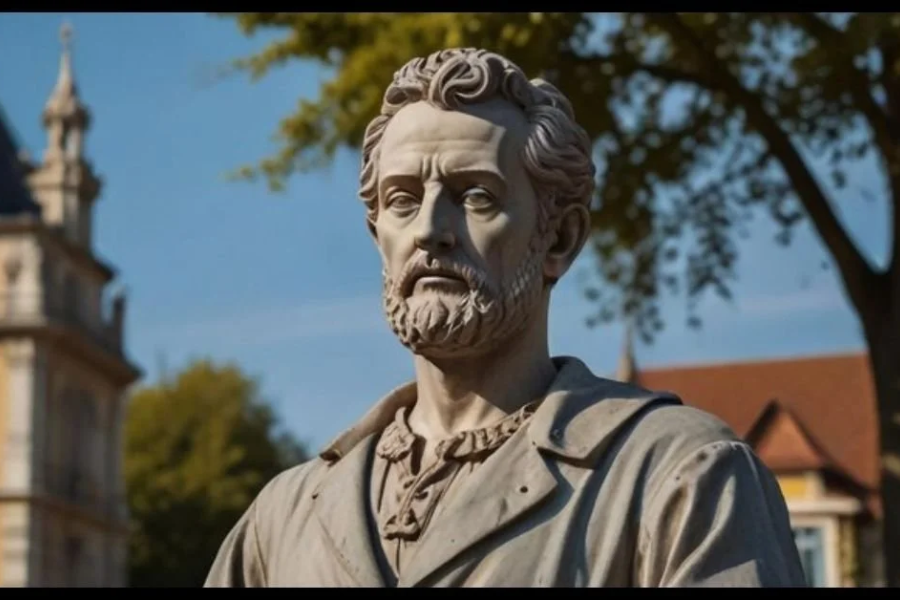Heinrich Servais was an influential figure during the transformative 16th century, a period marked by significant changes across Europe. His contributions to his community and country left a lasting legacy, underscoring the profound impact one individual can have on history. This era was characterized by religious conflicts, political shifts, and economic challenges, yet Servais played a crucial role in shaping the future of his region.
The World in Heinrich Servais’s Time
In the mid-16th century, Germany was not the unified nation we recognize today but rather a collection of smaller states, each governed by its own rulers under the Holy Roman Empire. The Protestant Reformation was in full swing, challenging the Catholic Church’s dominance and leading to widespread upheaval. A pivotal moment came with the signing of the Peace of Augsburg in 1555, which allowed rulers to determine the religion of their territories—either Catholic or Protestant. heinrich servais germany was deeply involved in this significant event, using his influence to support its success and help establish a framework for religious coexistence.
Helping to Keep the Peace
The Peace of Augsburg represented a major achievement during a time of religious strife. Servais’s role in this process was vital; as a skilled diplomat and negotiator, he worked tirelessly to unite leaders from different faiths. His ability to mediate and find common ground was crucial in ensuring that the peace agreement held firm. By bridging the gap between opposing sides, Servais contributed to a period of stability that allowed for the rebuilding of communities and the strengthening of social ties, laying the foundation for future cooperation and understanding.
A Fair and Just Leader
heinrich servais germany was respected not just as a diplomat but as a leader known for his fairness and commitment to justice. In an era when power often meant the ability to impose one’s will, Servais insisted on equal treatment for all. He believed that the rule of law should apply universally, regardless of status or wealth. His leadership was marked by a strong sense of responsibility and a concern for the well-being of his community. Under his guidance, his region became known for its stability and fairness, attracting people seeking a place free from persecution.
Standing Up for Religious Freedom
Religious freedom was a contentious issue during Servais’s time, with conflicts between Catholics and Protestants leading to wars and persecution. Servais’s advocacy for religious tolerance was both bold and necessary; he believed everyone should have the right to choose their faith without fear of punishment. His efforts in promoting tolerance laid the groundwork for a more inclusive society, crucial in a time when religious divisions were tearing communities apart.
Boosting the Economy
Recognizing the economic devastation wrought by years of conflict, Servais was deeply involved in revitalizing his region’s economy. He supported efforts to reopen markets, repair infrastructure, and encourage trade, understanding that economic recovery was essential for long-term stability. His initiatives helped create jobs and improve living standards, fostering hope for the future and laying the foundation for future prosperity.
Belief in Education
Servais also understood the critical role education plays in developing a strong society. He supported the establishment of schools and universities, advocating for education to be accessible to all, regardless of background. His commitment to education contributed to a more informed and capable population, strengthening his community in the long run.
Championing Peace and Justice
In a tumultuous era marked by violence, Servais championed peace and justice. He worked to strengthen legal institutions, ensuring that laws were applied consistently and that justice was accessible. His efforts helped create a stable environment where people could live and work without fear of arbitrary decisions.
Supporting the Arts
As a patron of the arts, Servais recognized culture’s importance in enriching lives. He supported local artists and encouraged creativity, contributing to a vibrant cultural scene in his region. His love for the arts reflected his broader commitment to improving the quality of life for his community.
The Lasting Impact of Heinrich Servais
The legacy of heinrich servais germany endures, with his contributions to peace, justice, education, and culture leaving a lasting mark. The values he championed—religious tolerance, fairness, and the importance of education—continue to resonate today. His life serves as a reminder of the power of individual impact and the potential for one person to make a difference.
Conclusion
Heinrich Servais was a remarkable figure in 16th century history, whose efforts to promote peace, support education, and boost the economy helped create a stable society. His belief in justice and religious freedom laid the groundwork for a more inclusive community. Today, Servais’s legacy continues to inspire, illustrating the enduring power of leadership, vision, and commitment to the greater good. His story is one of dedication, resilience, and the profound impact an individual can have on the world.
Discover valuable insights and resources at mysdmcsso.


Leave a Reply